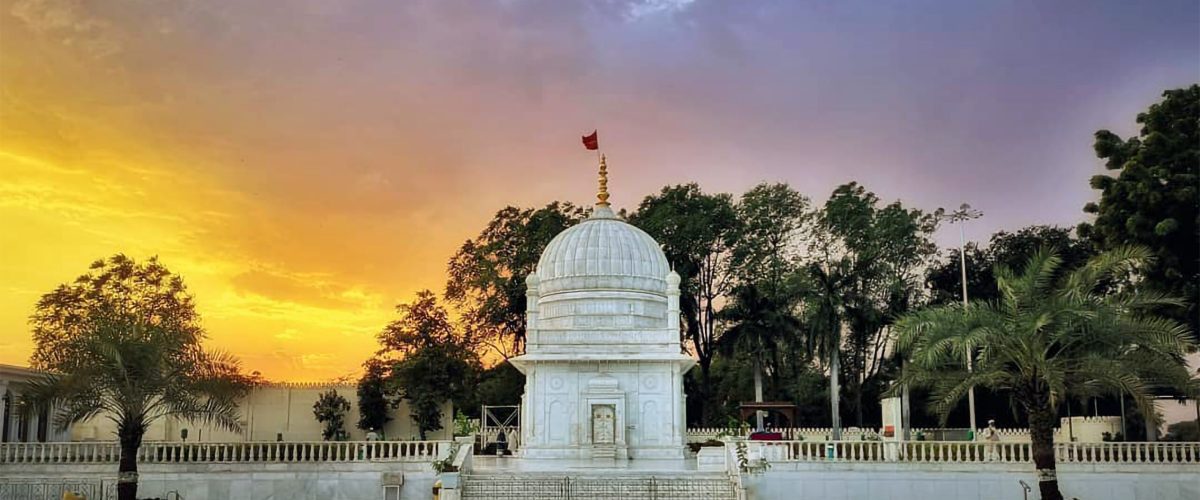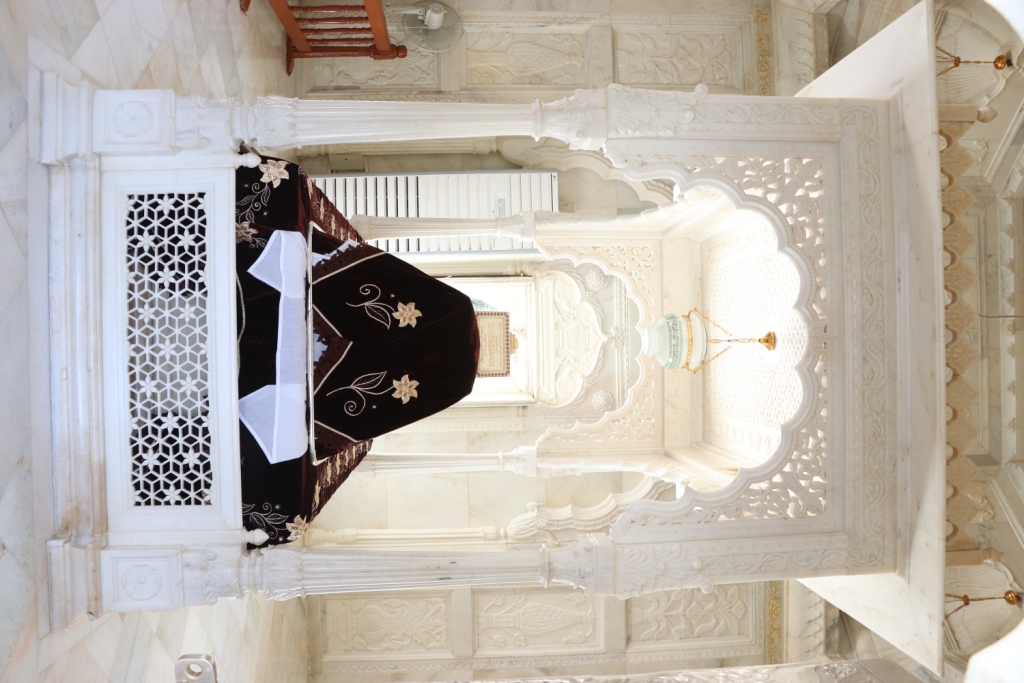Syedi Fakhruddin Shaheed (QS)
BABJI maula’s Mazar is in Galiakot, Rajasthan. He is 11th-century holy Ismaili, Fatimid, mustaali saint who was first Ismaili martyr, martyred during missionary work.

Syedi Fakhruddin Shaheed: A Beacon of Faith and Sacrifice in Dawoodi Bohra History
For every Dawoodi Bohra, the name Syedi Fakhruddin Shaheed resonates with profound reverence and inspiration. He stands as a towering figure in our rich spiritual heritage, not only as an 11th-century holy Ismaili, Fatimid, and Mustaali saint but notably as the first Ismaili martyr. His extraordinary life, dedicated missionary work, and ultimate sacrifice in Galiakot, Rajasthan, continue to illuminate the path for generations. This blog post delves into the inspiring journey of Syedi Fakhruddin Shaheed, exploring his pivotal role in Dawoodi Bohra history and the enduring significance of his mausoleum in Galiakot.
The Illustrious Origins: From Royalty to Righteousness
Syedi Fakhruddin Shaheed’s story begins with a unique background rooted in royalty. He was the esteemed son of Jain Raja Tarmal, a ruler who, alongside his brother Raja Bharmal, embraced Islam under the divine guidance of Moulaya Abdullah. This conversion marked a pivotal moment, transforming their lives and setting the stage for a lineage deeply devoted to the faith. Both Raja Tarmal and Raja Bharmal served as influential ministers to Jayasimha Siddharaja, showcasing their wisdom and standing even after their spiritual transformation.
This royal conversion underscores a powerful message: that the truth of faith transcends all societal boundaries and backgrounds. Syedi Fakhruddin Shaheed, inheriting this spiritual zeal, was destined for an even greater purpose. He had a son, Moulaya Dawood, whose resting place near his father’s mausoleum of Syedi Fakhruddin further highlights the spiritual continuity within this blessed family.
Embracing the Mission: Spreading the Light of Dawat
The era in which Syedi Fakhruddin Shaheed lived was one of intense spiritual propagation. He was entrusted with a sacred and immense responsibility: to oversee the religious affairs in the region that is now Rajasthan. This significant charge was given to him by Moulaya Yaqub, the son of Raja Bharmal and a direct representative of Imam Mustansir in India.
This appointment speaks volumes about Syedi Fakhruddin’s wisdom, piety, and unwavering commitment to the Dawat (religious propagation). He dedicated himself tirelessly to his missionary work, journeying through challenging terrains, spreading the pure teachings of the Fatimid saint and guiding countless souls towards the light of Islam. His efforts were not merely about conversion but about nurturing a community rooted in faith, knowledge, and devotion.
The Ultimate Sacrifice: A Martyr’s Legacy
The path of Dawat is often fraught with trials, and Syedi Fakhruddin Shaheed’s journey was no exception. It was during one of his dedicated religious travels, while en route from Sagwara to Galiakot, that he faced his ultimate test. On the outskirts of Galiakot, he was ambushed and tragically martyred by a group of brigands.
His martyrdom, a selfless act of sacrifice in the face of adversity, solidified his unparalleled status as the first Ismaili martyr. This profound event is not merely a tale of tragedy but a beacon of steadfastness and courage for every Dawoodi Bohra. It reminds us that faith often demands the ultimate sacrifice, and that truth will always prevail, even in the face of immense challenge.
Galiakot: A Sacred Abode of Spiritual Solace
The sacred land of Galiakot holds immense spiritual significance for the Dawoodi Bohra community, primarily because it cradles the revered Mausoleum of Syedi Fakhruddin Shaheed. This holy shrine is not just a structure; it is a living testament to his enduring spiritual presence and a perpetual source of blessings for those who visit.
The Galiakot Mazar has been meticulously cared for and renovated over centuries by successive Dais. Its initial construction in 1829 by Syedna Tayyeb Zainuddin marked the community’s devotion. Later, Syedna Taher Saifuddin undertook significant renovations in 1954, further enhancing its sanctity. Most recently, the mausoleum of Syedi Fakhruddin was beautifully reconstructed by Syedna Mohammed Burhanuddin, ensuring its magnificence for generations to come. Pilgrimages to this blessed site offer profound spiritual solace and a powerful connection to the legacy of this great martyr.
An Enduring Spiritual Lineage: Pillars of the Dawat
Perhaps one of the most remarkable aspects of Syedi Fakhruddin Shaheed’s legacy is his direct spiritual lineage to an astonishing nine Dawoodi Bohra Dais, the spiritual leaders of the community. This includes revered figures such as Syedna Mohammed Ezzuddin, Syedna Tayyeb Zainuddin, Syedna Abdul Qadir Najmuddin, Syedna Abdul Husain Husamuddin, Syedna Mohammed Burhanuddin I, Syedna Abdullah Badruddin, Syedna Taher Saifuddin, Syedna Mohammed Burhanuddin, and most significantly, our current and beloved leader, Syedna Mufaddal Saifuddin.
This direct ancestral link is a profound testament to the divine blessings bestowed upon Syedi Fakhruddin Shaheed and his family. It signifies a continuous chain of spiritual guidance and leadership, extending from a foundational martyr to the present Imam’s Dai. This unbroken chain reinforces the spiritual continuity and authenticity of the Mustaali Ismaili Dawat. He is also the ancestor of other respected personalities like Syedi Shams Khan and Syedi Hasan-ji Badshah, further cementing his far-reaching impact on Bohra history.
Conclusion: An Everlasting Inspiration
The life of Syedi Fakhruddin Shaheed is a timeless source of inspiration for every Dawoodi Bohra. His journey from a royal lineage to a dedicated missionary and ultimately a martyr epitomizes the strength of faith, the courage of conviction, and the profound impact one individual can have on the course of history.
His mausoleum in Galiakot continues to draw countless pilgrims seeking blessings and spiritual connection. His spiritual lineage provides a tangible link to the revered leaders of our community. As we reflect on his life and sacrifice, we are reminded of the values he embodied: selfless devotion, unwavering commitment to truth, and readiness to sacrifice everything for the sake of faith. May his blessed soul continue to be a source of guidance and inspiration for all Mumineen.
